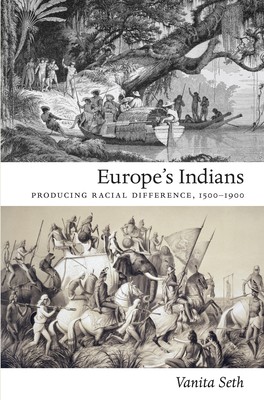
- We will send in 10–14 business days.
- Author: Vanita Seth
- Publisher: Duke University Press
- ISBN-10: 0822347644
- ISBN-13: 9780822347644
- Format: 15.5 x 23.1 x 2 cm, softcover
- Language: English
- SAVE -10% with code: EXTRA
Reviews
Description
Europe's Indians forces a rethinking of key assumptions regarding difference-particularly racial difference-and its centrality to contemporary social and political theory. Tracing shifts in European representations of two different colonial spaces, the New World and India, from the late fifteenth century through the late nineteenth, Vanita Seth demonstrates that the classification of humans into racial categories or binaries of self-other is a product of modernity. Part historical, part philosophical, and part a history of science, her account exposes the epistemic conditions that enabled the thinking of difference at distinct historical junctures. Seth's examination of Renaissance, Classical Age, and nineteenth-century representations of difference reveals radically diverging forms of knowing, reasoning, organizing thought, and authorizing truth. It encompasses stories of monsters, new worlds, and ancient lands; the theories of individual agency expounded by Hobbes, Locke, and Rousseau; and the physiological sciences of the nineteenth century. European knowledge, Seth argues, does not reflect a singular history of Reason, but rather multiple traditions of reasoning, of historically bounded and contingent forms of knowledge. Europe's Indians shows that a history of colonialism and racism must also be an investigation into the historical production of subjectivity, agency, epistemology, and the body.EXTRA 10 % discount with code: EXTRA
The promotion ends in 10d.20:05:16
The discount code is valid when purchasing from 10 €. Discounts do not stack.
- Author: Vanita Seth
- Publisher: Duke University Press
- ISBN-10: 0822347644
- ISBN-13: 9780822347644
- Format: 15.5 x 23.1 x 2 cm, softcover
- Language: English English


Reviews